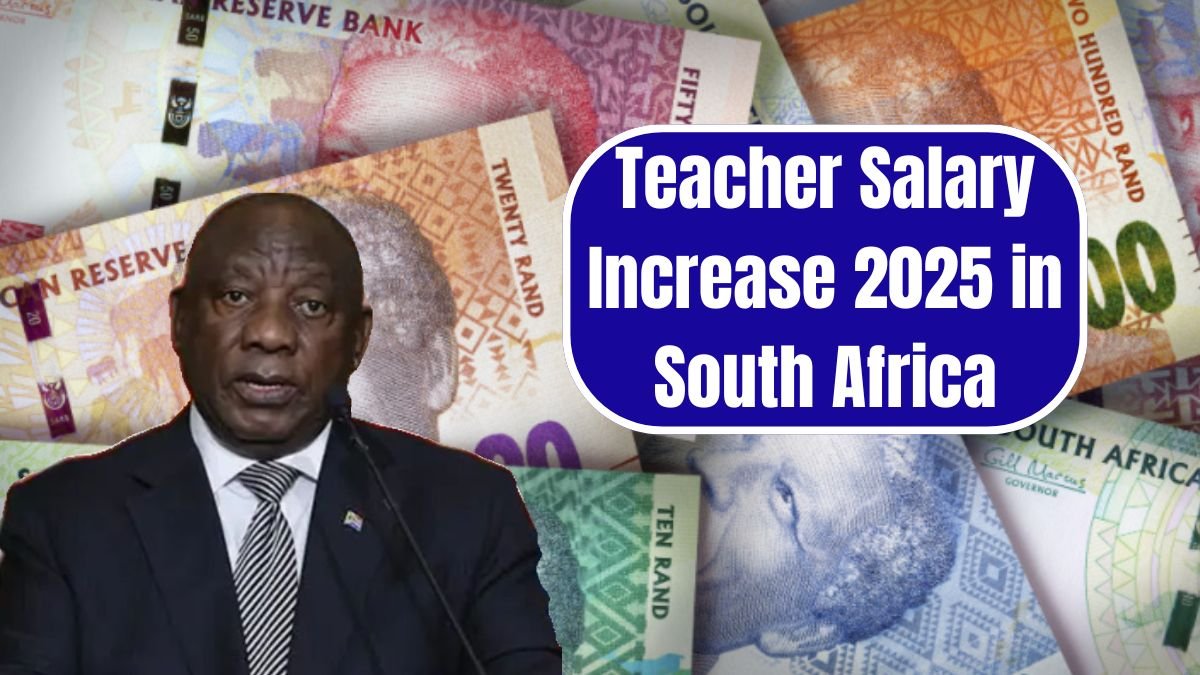It had to be established that salary increases for teachers of public schools in South Africa could only be made in the year 2025, as stipulated in the collective bargaining agreements, and announced by the Government. The idea behind the existing changes is to afford the teachers some measure of insulation against inflation, a change perhaps in their benefits, and ensuring fair pay for qualification and experience. A few points describing the alterations in salary, new salary scales, benefits, and all else students can do with information are stated here.
What’s Changing: The Raise and Negotiations
In early 2025, public-sector unions and government reached a bargaining agreement via the Public Service Co-ordinating Bargaining Council (PSCBC) that grants a 5.5% cost-of-living salary increase for 2025, effective from April. This adjustment forms part of a multi-year deal: for 2026-27, future salary increases will be linked to the Consumer Price Index (CPI), with a floor of 4% and a cap of 6% to avoid large swings.
New Pay Scales Expected in April 2025
Within the Public-education salary structure, pay-scales are arranged under bands/notches. These, in essence, form tiers depending upon qualification (Relative Education Qualification Value, i.e., REQV), experience, and responsibility of an activity. The lowest notch (entry-level teacher) had a salary of almost R154,671 in 2024, which after an increment of 5.5 percent, would be expected to reach up to around R163,178 in 2025.Senior posts, however, being the highest levels-a principal and heads of departments-were remunerated at roughly R1,209,279, which, after an increment, in 2025, would compromise almost a monthly figure of around 1,275,798.
The Gain: Qualification, Experience, and Seniority
Teachers will not all get the same amount of actual increases in salaries; the greatest determinant of where a teacher is placed on a salary scale is:
- Qualification : Those teachers that are higher qualified with degrees and diplomas will be placed higher in the bands of REQV levels.
- Experience: Teachers with more years of service are placed higher in the notch scale and thereby receive increased pay within a band level.
- Leadership : Principals, deputy principals, or heads of departments are in the layers of upper echelon; hence, they have higher pay scales. Also, the level of responsibility associated with such positions is a consideration.
Benefits & Allowances
With an increase in the basic pay come innumerable benefits and allowances, which also increase or are reaffirmed:
- House Rent Allowance / Government Employee Housing Scheme: This allowance received an increased base rate on April 1, 2025; in general, it is for public service workers. Since teachers also belong to this scheme, they cannot be excluded.
- Medical Aid Contribution: These shall increase at the rate of MPI, and teachers on medical aid had their subsidies accordingly adjusted.
- Other Allowances: There may be increases in danger allowances and other special allowances or further service allowances. The agreement provides for increases in respect of qualifying special allowances.
To Do and Watch
- Check your notch and REQV: Ensure that the qualification is properly registered so that one can be placed against the right salary level.
- Check pay slips to make sure a 5.5% increment has been awarded from the effective date of April 2025, and that no administrative delay was interjected in the mean time.
- Allowances and Deductions: Have a clear picture of what your eligible allowances are-housing, medical subsidy, etc.-and how these interact with the deductions in the salary increase.
- Further adjustments for inflation: The salary increases for 2026-27 will be tied to inflation figures set within bounds (minimum 4% and maximum 6%) for teachers to be budgeted on.
From Broader Impacts: Education Budget & Retention Into Classrooms
The national budget for 2025 brought in additional resources for the education sector-about R19.1 billion over the medium term-to address teacher retention issues in the classroom due to shortages the country is facing and the pupil-teacher ratio that is unacceptably high.
also read: SASSA Senior Age Pension Grant October 2025 – Full Payment Dates Timetable
